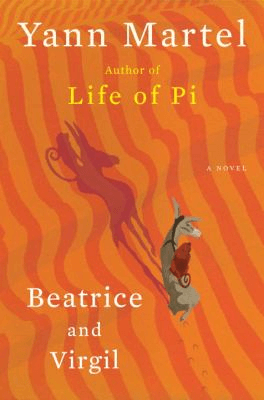This week I finally got into a new book I’ve been anxiously awaiting for quite some time. It is Yann Martel’s The High Mountains of Portugal. Martel is probably best known for his bestseller Life of Pi, which was adapted to the big screen with much acclaim. It is rare that I read a bestseller while it is popular, but with Yann Martel, I really couldn’t wait.

The first time I “read” Life of Pi, I didn’t even really read it. I fake read it for a book-club I was leading (this is a public admission, sorry to the book-club folks, if you’re reading this you know who you are). This was many years after the novel’s initial success. I was sold by the discussion generated in the book club, so I just had to read it, for real this time! Really reading it, I loved it. I loved the amount of research that you could tell went into the book. It touched on subjects like zoology, religion, history, psychology and much more. I couldn’t put the book down, and I couldn’t stop thinking about it. The film adaptation was pretty good too.
The next work of Martel that I read was his novel Beatrice and Virgil. I loved this book. It is a holocaust book in a way, although it doesn’t take place during the Holocaust, nor in Germany or any of the former occupied territories, and on top of it all, the two namesake characters from the title are taxidermied animals, a donkey and a howler monkey. I’ve always been interested in the Holocaust, but this book renewed this interest and made me revisit The Diary of Anne Frank, The Sunflower and more. This novel’s unique perspective on the banality of evil was really a different way of looking at the horrible events that happened over 65 years prior to the book being published. Plus, the book includes this great dialog about a pear. This Holocaust allegory leaves a lasting impression.

That leads us to The High Mountains of Portugal. Released in February of this year, I couldn’t crimp my fashionably late style by actually reading it when it came out, so I’m reading it now. Martel does it again. Three distinct yet related stories set in, well, the High Mountains of Portugal. Death, religion, redemption, morality, existential unease, sex, love and sorrow are topics interlaced in these stories. Martel masterfully paints the time periods of each story, the earliest of which takes place in 1904, and prominently features people’s reactions to a frightening new technology, the automobile. He also manages to illuminate the inhumanity of the colonial slave trade in a way similar to the way he treated the Holocaust in Beatrice and Virgil. The High Mountains of Portugal’s three stories weave together into a great tapestry of a novel. I’d highly recommend this book, which I honestly couldn’t put down.
-Scott M.
Enjoy Yann Martel’s Literary Tapestry
Reserve The High Mountains of PortugalScott M. is the Assistant in the Office of Programs and Partnerships at East Liberty. When not busy running around with his two daughters, he likes reading non-fiction, learning languages, gardening and cooking.
